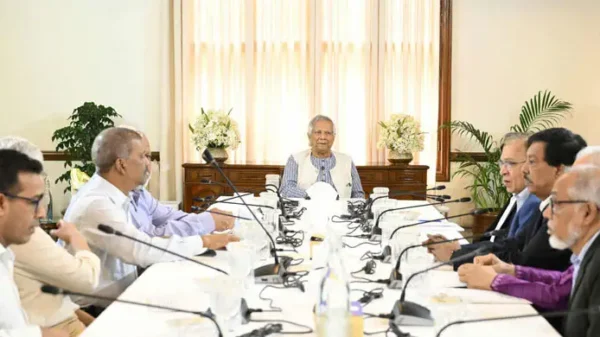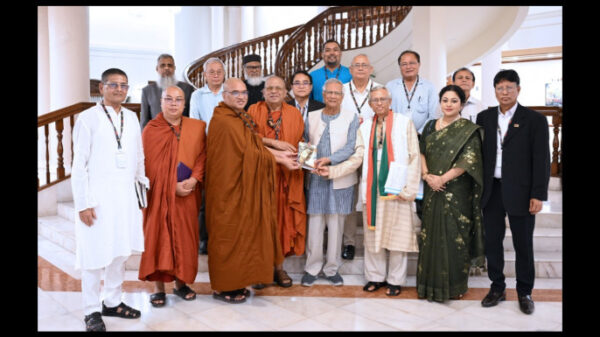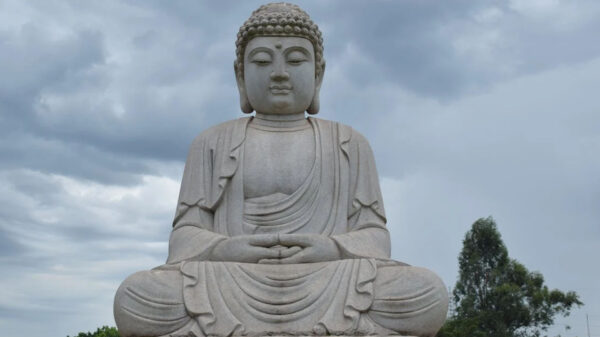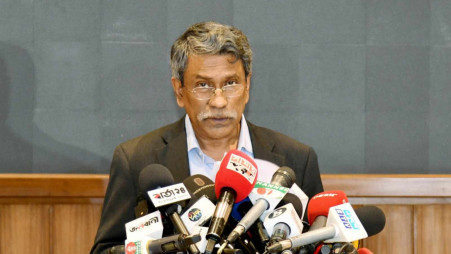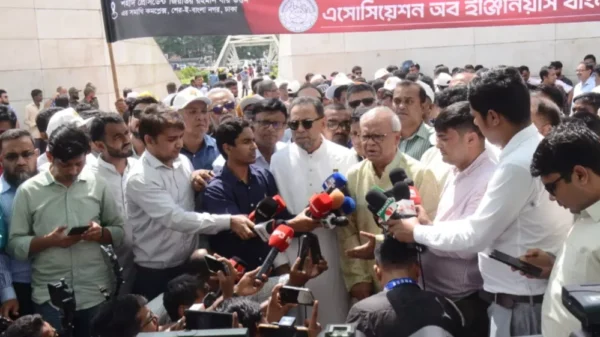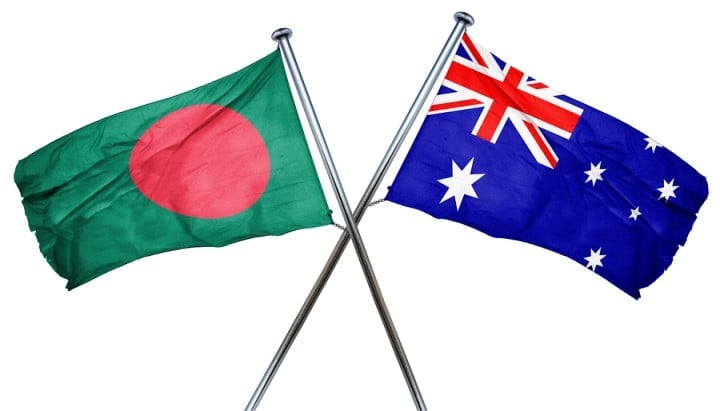Staff Reporter:
Bangladesh and Australia are committed to working together to find out practical solutions to the shared contemporary challenges, including maritime security threats, climate change, cybercrimes and counter-ing trafficking in persons.
Both the countries also appreciated the growing strategic depth and dimensions of the bilateral relations between Dhaka and Canberra.
These were observed at the bilateral meeting with Bangladesh foreign minister Dr Hasan Mahmud and his Australian counterpart Penny Wong that held on Tuesday in Dhaka, according to a joint statement issued in Dhaka yesterday.
During the meeting, the Ministers acknowledged the importance of building regional health security, promoting demographic resilience, enhancing multi-modal connectivity, and strengthening clean energy supply chains.
They agreed on the importance of promoting open channels of communication and confidence-building measures to reduce the risk of conflict in the region.
The Ministers noted the warm bilateral relationship founded on more than fifty years of diplomatic rela-tions and deepening friendship between our peoples.
They also recognized that the high-level visits at the political level can help to take the relationship to further new heights.
The Ministers affirmed their intention to enhance cooperation on deepening two-way trade and economic ties as Bangladesh progresses towards graduation from UN LDC status, with Australia committing to maintain tariff-free, quota-free access to its market to support Bangladesh’s smooth transition.
The Bangladesh Minister provided assurances that necessary support would be given to Australian inves-tors, including in thrust sectors like agro-processing, ICT and logistics.
The Ministers noted Australia’s ongoing funding for multilateral development banks to support Bangla-desh’s efforts to address its priority structural reforms that would bolster development and economic growth. The Ministers stressed the need for strengthening the international financial architecture.
Noting the importance of enhanced connectivity to increase regional economic integration and growth, the Ministers discussed Australian technical support in partnership with the World Bank and Internation-al Finance Corporation to the connectivity measures via South Asia Regional Infrastructure Connectivity program.
They also agreed to work further on bilateral air connectivity and cable connectivity resilience.
They noted the commonalities between Bangladesh’s Indo-Pacific Outlook, the Indian Ocean Rim Asso-ciation’s Indo-Pacific Outlook and the ASEAN Outlook on the Indo-Pacific. They reaffirmed their shared vision and desire to work towards a region that is peaceful, stable, prosperous, inclusive and free from intimidation, interference and coercion.
The Ministers reaffirmed their support for sovereignty and territorial integrity in the Indo-Pacific, dem-ocratic values, human rights, freedom of navigation and over flight and the peaceful resolution of dis-putes.
The Ministers confirmed their commitment to enhancing maritime and oceans capabilities as a critical means to protecting our marine environment and promoting sovereignty and the rule of law.
The Ministers agreed to strengthen cooperation to combat people’s smuggling and transnational crimes across the region, including through prioritizing cooperation between their coast guards.
They agreed to support regional and international efforts towards combating transnational organised crimes in the Indo-Pacific through both normative and practical actions.
As founding members of the Bali Process on People Smuggling, Trafficking in Persons and Related Transnational Crime, Australia and Bangladesh expressed concern about the loss of life and exploitation of vulnerable people such as the Rohingyas, including women and children, at the hands of transnational criminal networks.



